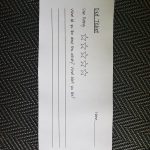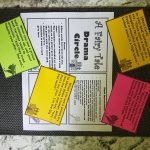The aim of this project was to expose students to a number of different oral language opportunities in order to promote confidence in their oral communication abilities, as well as increased participation. We wanted to reinforce the idea that oral communication was not to be viewed with fear and as method of assessment, but rather as an important life skill that is used every day. By expanding the professional learning of the educators, there was opportunity to differentiate instruction and develop strategies that encouraged a range of speaking and listening skills in the students. The students experienced a variety of activities in a comfortable, safe environment where they took risks with oral communication.
Team Members
Nancy Jokinen
Simcoe County District School Board
Angela Whetham
Simcoe County District School Board
Sandra Thibault
Simcoe County District School Board
Marie Swift
Simcoe County District School Board
Professional Learning Goals
- We have a better understanding of the reluctance that often accompanies a student’s oral participation, including in-class responses, presentations and organized conversations with peers. In giving our students the opportunity to be open and honest about their reluctance and fear, we were enlightened as to some of the underlying reasons for their dislike of the task.
- With this opportunity, we were able to further develop collaboration amongst grade partners using time dedicated to this specific collaboration
- We were able to develop effective, engaging and meaningful tasks to support student learning as they develop their oral communication skills
- We have a clear understanding of the importance of “teacher language” when assigning oral tasks
- We improved our own competency in learning about Google Forms and the creation of video announcements
Activities and Resources
Resources Used:
- Google Classroom
- Google Forms
- Team recorded video evidence of students using iPads during in-class collaborative activities, drama circles, seminar presentations, story telling and Q & A conversations
- Students used iMovie and editing tools in the production of MGTV news
- Talking to Learn – 50 Strategies for Developing Oral Language by Joan Green, Jennifer Glass and Kathleen Gould Lundy
- Well Spoken: Teaching Speaking to All Students by Erik Palmer
- Teaching Fairly in an Unfair World by Kathleen Gould Lundy
Activities:
- Collaboration with Teacher Librarian for technology and video announcement support
- Cross-class collaboration for students for seminar presentations and discussions
- Students were provided with an entry/exit survey (on a Google Form) to provide student voice to thoughts and feelings surrounding oral communication
- Drama Circles (students participate in whole class activity from Teachers Pay Teachers (TpT); activity should be repeated)
- Exit tickets were created and distributed to students to gather feedback following Drama Circle and storytelling activities
- Q&A discussion opportunities – Students were presented with five potential topics and selected three to discuss with a partner
- Students worked in collaborative groups to produce MGTV News (video announcements that were viewed by the school student body)
- Inclusive games
- Students wrote and presented a Rant, via video as their culminating oral language task
Unexpected Challenges
One team member was scheduled for surgery on May 8 and was away from school until mid-June, which created unexpected challenges with the timeline for completion of activities. This team member left the final oral task (Rants) with the LTO teacher, under the guidance of the remaining team members.
Student attendance was also a challenge in building on prior learning from missed activities. There was a spike in absences on days where oral communication activities were scheduled, which resulted in rescheduling to accommodate for absences.
Students were occasionally frustrated with classmates or group members when they refused to stay on task. Off-topic conversation occasionally led to incomplete tasks or an extension of time to finish.
Enhancing Student Learning and Development
We are pleased at the way our learners responded to this project. Public speaking or doing a presentation doesn’t rank high on a “favourite things to do” list for many of them, and stepping outside of a comfort zone is also a difficult task. With encouragement and reminders that they were in a safe learning environment, all students participated in at least some aspects of the project. The Drama Circle activities allowed them to laugh despite their fears, and giving a science “seminar” to a small group of peers, who were all seated in chairs in a circle, was far less daunting than standing up in front of the class. We determined that, for many, it is an issue of confidence and trusting their own abilities.
We determined that using different terminology helped lessen their distaste for an oral language task and the anxiety that often accompanies it. We continued to reinforce growth mindset learning and the idea that public speaking is a necessary life skill. Soon these intermediate students will be seeking part-time jobs and volunteer positions, and presenting themselves in a favourable manner will be a key to their success.
With continued practice and opportunities to be engaged in accountable talk, these students will develop a stronger belief in the power of their own voice, thereby enhancing their own learning and development. Our hope is that they view it as a life skill that will serve them well, and not solely as a part of a curriculum expectation.
Sharing
Our project will be shared with at a Lunch-and-Learn within our school community. A Google Slide presentation has been prepared that will highlight student voice and their progression through the project highlighting video interviews with students, as well as the results of the entry and exit surveys.
Although we are a team of intermediate teachers, our target audience is not limited to our specific grades. The importance of teaching confidence in oral communication is an ongoing progress and the earlier a start, the better. We will specifically share our learning surrounding “teacher language” with our Intermediate and Junior Division colleagues as that was a key area of learning for us … how we present and describe a task can directly influence a student’s response to it.
Project Evaluation
Prior to beginning our selected activities with our students, we asked each student to complete a survey on Google Forms which asked questions about their feelings toward public speaking and other oral language activities. This proved to be a valuable collection of student voice, providing us with a range of answers to a variety of questions. The students were given a similar survey nearing the conclusion of the project and a number of them indicated a greater level of comfort in speaking in front of their peers after the completion of the various activities.
In response to the question, “How can teachers help you to express yourself better?” a common response from students was they wanted to be given different types of assignments that offered different opportunities for presentation styles. Many agreed that they felt nervous in front of the entire class, but felt better presenting in a smaller forum.
The majority of students enjoyed oral language opportunities that were less formal – for example, the Drama Circle activities or the Q & A conversations. Even though many students indicated that participating in the Drama Circle activities pushed them outside of their comfort ones, they enjoyed the silly aspect and the kinesthetic component. One student responded that even though she didn’t think she was going to like the activity, it was fun and she felt good afterwards for having done it. A large number of students liked having choice in their subject matter, and they responded favourably to the term “expert” when given the opportunity to share the knowledge they had gathered or experienced. Three students commented that it was a confidence boost to be referred to in that manner. Students are excited to perform their Rants, in the style of Rick Mercer, videotaping their finished piece and performing it in a setting of their choosing. We all agreed that in using technology to share the oral presentation, each student would be more comfortable and thereby more confident in presenting their finished project.
We believe our project was a success, and one that enhanced the learning of our students, as well as our own professional learning. Our students took risks, and gained some confidence along the way. What more could we ask for?!
As educators, we learned the value of word choice and the importance it has for our learners. We developed our own proficiency in collaboration and planning, and learned more about Google Forms and what a remarkable tool it can be. We continue to appreciate the need for flexibility in our profession and, despite an unexpected surgery date, the learning continued for all of us! Again, what more could we ask for?
Resources Used
Well Spoken – Teaching Speaking to All Students – author Erik Palmer
Talking to Learn – author Glass, Green, Lundy
Drama Circle Bundle – purchased from Teachers Pay Teachers
https://www.teacherspayteachers.com/Product/Drama-Circle-Bundle-1144666
Drama Circle – A Fairy Tale
https://www.teacherspayteachers.com/Product/Drama-Circle-A-Fairy-Tale-278391
Resources Created
These resources will open in your browser in a new tab, or be downloaded to your computer.







